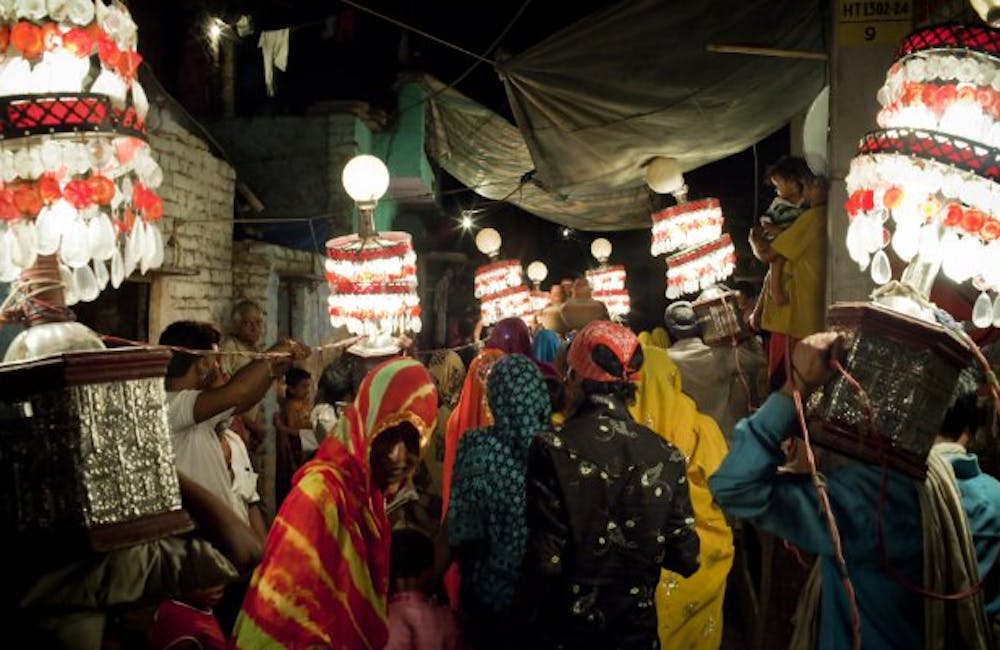Now, they’re making their rounds in film festivals around the world with the documentary they produced and co–directed, “Tomorrow We Disappear.” The film, which screened at the Philadelphia Film Festival in October, follows traditional artists and street performers from a small slum in New Delhi. The Kathputli Colony, as it is called, was sold by the Indian government to redevelopers in 2009, and the 2,800 families who live there are caught in a struggle to maintain their homes and their heritage. In his interview with Street staff member Leonard Eisen, Jimmy Goldblum discussed his film and the future of the Kathputli Colony.
34th Street Magazine: So, what is “Tomorrow We Disappear” about? What is the Kathputli Colony?
Jimmy Goldblum: The film chronicles a magician, an acrobat and a puppeteer through the final years of the world’s largest community of street performers. The Kathputli Colony is this really bizarre, incredible, hand–built artist village hidden away in the slums of New Dehli.
Street: How did you get involved with this project? Did you have prior experience in Indian culture and society, or was this all new to you?
JG: I had actually been to India before. It’s a very interesting country in the sense that, I’d say more so than any other place I’ve been, they found a way to separate the tourist class from the general populace of the country in a really dramatic fashion. I really felt a compulsion to get back there, because I felt like I was just being protected from seeing the real face of the country.
Street: What would you say were the biggest challenges you faced in making the film?
JG: [The Kathputli Colony] has an incredibly vibrant culture and amazing heritage, but it still has all the trappings of a slum. We would be conducting an interview and someone would be burning trash outside and it [would be] blowing in my face.
Street: How were you received by the people in The Kathputli Colony? Was there ever a period of distrust or misunderstanding about your objectives?
JG: I think for us, it was less distrust and more about a certain level of performance. They’re artists and performers, and so you come in and they’re like, “Ah, cameras, let me tell you about magic, let me tell you about puppetry.”
It was this very rehearsed script that they were used to doing with other journalists—we’re not journalists, you know, we're filmmakers, and there really is a difference. After that first two weeks where you're just going through the song and dance with people, they're like, “Alright, we already did our show for you. What do you want?”
And we're like, “Yeah, we want you to stop doing that and we can actually see what your life is like.”
So, I think a lot of it was being able to build real relationships that were predicated on trust and mutual respect—that just takes time, you know, and coming back and consistently walking through with people, through your intentions. It's not an easy thing.
Street: What do you see as the best outcome of this conflict?
JG: In general, we're dealing with a culture that doesn't necessarily have a place—a comfortable place—in the modern world. And I think that the reason it's called “Tomorrow We Disappear” is because we're dealing with something that feels a little bit like an inevitability that these sort of cultural traditions will just become increasingly archaic and go away. I think, for me, what would be best is that India finds a way to create a safer space for those arts.
The Japanese have a way of working with their traditional artists where they actually subsidize their lives. The National Living Treasures—that's what they call their traditional artists. And what it is, is that you recognize that these aren't arts that can necessarily survive in a capitalist system, because the audiences aren't there, but they have a value that transcends commodity value.
If you can do that, then you can actually create a much more interesting cultural dialogue in your country, because then you have these long standing traditions in dialogue with your modern traditions.
Check out what else we saw at the Philly Film Festival!

